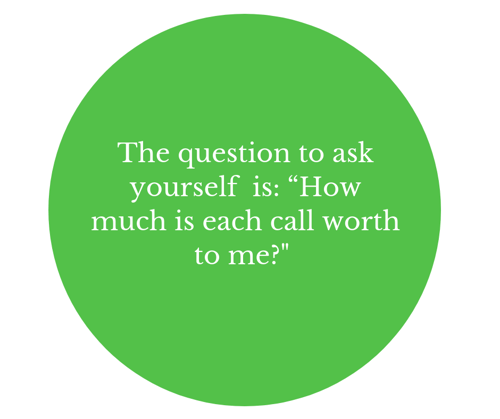
Voicemail became cutting edge technology when Voice Message Express pioneered electronic messaging in 1979. For the first few years, it was extremely expensive, and not many companies could take advantage of the proprietary systems. As PC-based voice processing boards became readily available, costs were reduced, and the adoption of voicemail use by businesses exploded.
There are two types of voicemail options:
1) Standard Voicemail Boxes
Consists of one "mailbox" where a pre-recorded greeting is created, and messages are recorded and stored when the end-user is not available or chooses not to answer the telephone.
2) Extended Voicemail Boxes
Consists of a main menu box and three or more linked "mailboxes." The main box, also known as the "what to do" box, acts as a menu for one-digit access to the other mailboxes where messages are recorded and stored when the end-user is not available or chooses not to answer the telephone.
Many business owners are faced with having to decide if voicemail is, in fact, the correct route for answering their calls. Our response to this is: it depends.
When Voicemail Might Be the Right Choice.
Use of voicemail for some businesses makes sense for three reasons:
- It is cost effective.
- It is easy to set up and use.
- It allows for communication continuity even when the end user is unavailable.
Many large and small companies rely on voicemail as a bridge to fill their communication gaps with their customers because it is a very cheap and effective way of gathering information when staff is not available to take calls.
When Voicemail Might Be the Wrong Choice.
If you are strictly looking at the cost of a voicemail system as compared to other alternatives, it can seem like the smart choice to make for every company, but there are some instances when voicemail can cost more than it is worth.
If your call value is high, meaning that the cost of the call has the potential to generate more revenue for your business if you do answer now, or cost you money if you don’t answer now—then you may want to reconsider utilizing an answering machine for those calls.

Why Is Voicemail Not Effective for High Value Calls?
If your service offerings to your customers are time sensitive, then having your voicemail answer your calls may pose challenges to your ability to respond in a timely manner.
Think about the voicemail process:
- Caller leaves a message on your voicemail system.
- Someone must spend time listening to those messages, gathering information, and then documenting it.
- Someone must be tasked with trying and reaching back out to return the call.
Even if you have visual voicemail, the voicemail process wastes precious time and may pose hindrances to your ability to capture important calls as they come in. Or even worse, may impede your ability to act quickly and mitigate potential damages.
Studies show that 8 out of 10 callers hang up when they reach voicemail recordings, neglecting to even leave a simple message for you to contact them.
Let’s consider a few high call value scenarios, where voicemail as a communication method for answering phones for your business isn’t effective:
- A man falls on an ice patch during his lunch break and busts out his front tooth. He tries to reach his dentist’s office, but his call is sent to voicemail. You think that he is going to wait around for that dentist to call back? Think again. He will be calling the next dentist on the list.
- A fire department keeps trying to reach an apartment complex property manager, but is continuously sent to voicemail. The reason for their call? One of the tenants has smoke filling their apartment, but the fire fighters can’t determine the source—and they need a verbal “ok” and a key to get into a neighboring apartment (no one is responding to knocking) to see if the source of smoke is coming from there. The fire department makes a decision, and tears down the door with an axe—causing hundreds of dollars in damages, and putting the tenant out for the night after not being able to reach the property manager for a period of time. To note, there was no fire in that apartment. (True Story)
Common—High Value Call—Businesses
Here is a list of few types of companies who generally have a high “per call” value:
- Oil and Gas Companies (Alarm Monitoring & Service Company's)
- Medical Offices
- Veterinary Clinics
- Dental Offices
- Funeral Homes
- HVAC Contractors
- Plumbers
- Electricians
- Notaries
- Law Offices
- Locksmiths
- Web Page Hosting Companies
- Apartment/Housing Companies (Tenant Emergency Hotline)
If you are on this list, you may want to seriously consider routing your high-value calls to a voicemail alternative.
Alternative Options to Traditional Voicemail.
Businesses generally send their calls to voicemail because in one way or another, they are understaffed and can’t keep up with their call demand. Some are small businesses who simply don’t have the manpower to do their work and handle calls. Others are businesses that are in a thinly stretched growth phase, and don’t yet have the resources to hire another person to assist them with call handling in- house.
Regardless of your reason, if you have been sending your calls to voicemail, but think that it might not be the best method for your high value calls, we have two simple suggestions for alternatives to traditional voicemail.
- 1. Voicemail Tree
How It Works:
- All of your callers will initially hear a pre-recorded message which will allow them to identify their call and select from your menu options accordingly.
- The system will route your calls based on your specifications. Whatever calls you deem as low value can be sent to voicemail, and your high value calls can be routed to a live person.
Who We Suggest This For:
- Companies who have many different types of calls—a mixture of high value calls that require an escalation plan, and low value calls that can wait until office hours to be addressed.
- 2. Partner with An Answering Service Who Can Handle Your Rollover/Forwarded Calls
How It Works:
- You can set your phone to ring a certain amount of times, and once a call rings in that many times—it will roll over to your answering partner who can answer on your behalf.
- You can directly forward your phone during periods that you are unavailable to answer calls.
Who We Suggest This For:
- Companies who have a majority of the same type of calls—high value calls that need to have escalation protocols set up.
It comes down to this—if you determine that the value of your calls is high, then you don’t want to leave it up to chance that a voicemail will be able to successfully take a message for you. Your callers need to be assured that someone has heard them and is acting right now on their behalf.
Need some help to determine if your communication plan is really working for you?
Or
Call Us: 877.339.2666




